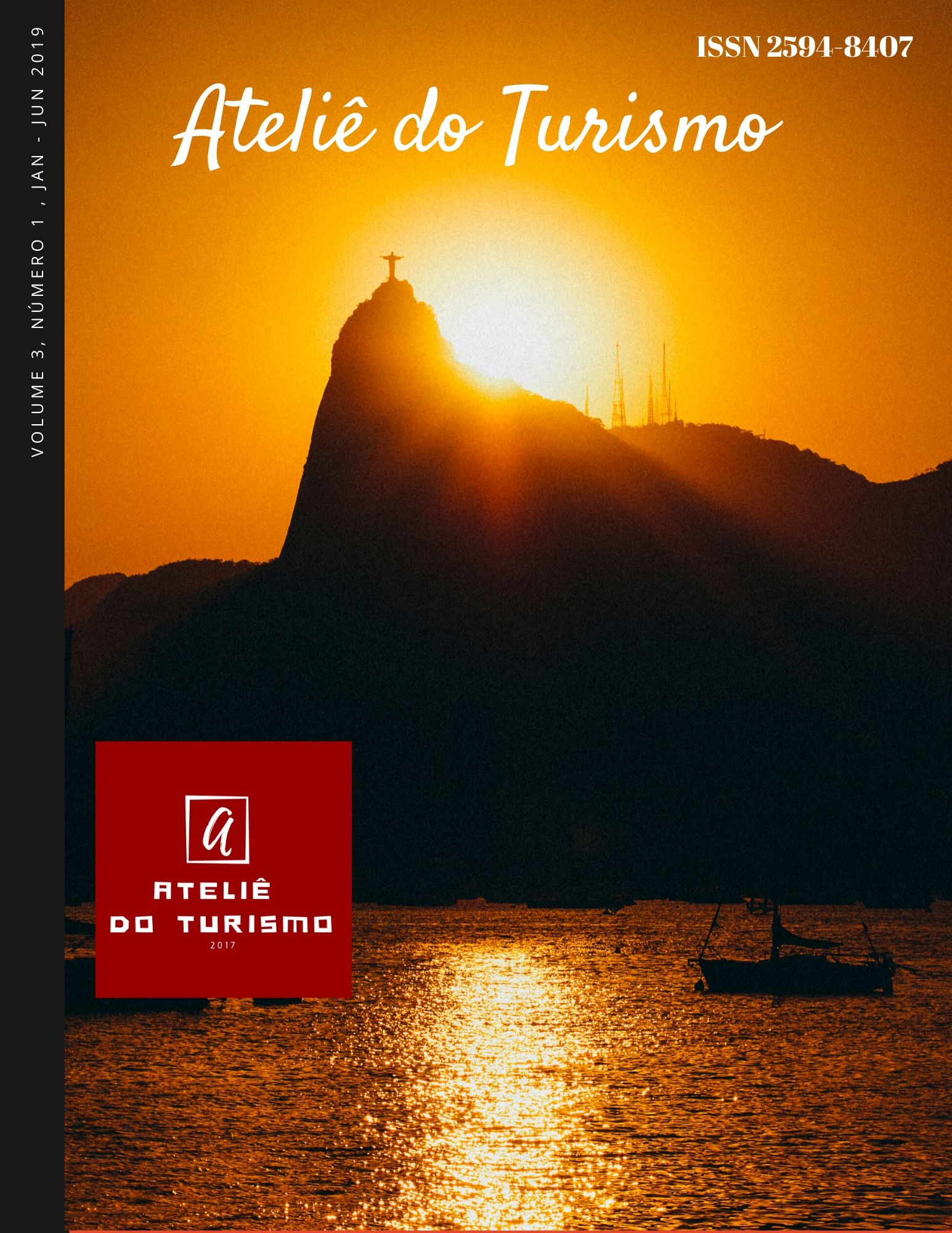Turismo e desenvolvimento local: estudo no parque ecológico Cachoeira do Urubu-Piauí-Brasil
Resumo
O turismo constitui-se uma prática de relevante contribuição socioeconômica e cultural para o desenvolvimento local. Entretanto, é necessário que haja planejamento e estruturação das áreas de conservação para que não cause danos ao meio ambiente. Assim, este estudo objetiva, analisar a contribuição do turismo no desenvolvimento local da região do Parque Ecológico Cachoeira do Urubu, entre os municípios de Batalha e Esperantina-PI, bem como investigar se as intervenções ocorrem de forma sustentável ao ambiente e a população envolvida. Para o desenvolvimento do trabalho foram feitas pesquisas bibliográficas, observação in loco e conversas informais com os proprietários de estabelecimentos no local. Constatou-se que o turismo no Parque Ecológico Cachoeira do Urubu é de grande importância para o desenvolvimento social, econômico e cultural, todavia, precisa ser alicerçada de um planejamento adequado com gestão participativa, para resultar em benefícios tanto para a preservação do meio ambiente natural, quanto dos turistas e a população local envolvida.
Downloads
Referências
Aguiar, R. B. (2014). Projeto cadastro de fontes de abastecimento por água subterrânea, estado do Piauí: diagnóstico do município de Esperantina. Fortaleza: CPRM - Serviço Geológico do Brasil.
IBGE (2018). Dados Socioeconomicos De Esperantina-PI. Recuperado em 28 mai. 2018 de https://cidades.ibge.gov.br/brasil/pi/esperantina/panorama
IBGE (2018, maio). Dados Socioeconomicos De Batalha-PI. Recuperado em 27 mai. 2018 de https://cidades.ibge.gov.br/brasil/pi/batalha/panorama.
Dias, R. (2005). Gestão Local do Turismo: Competitividade com Sustentabilidade. In Gestão de Hotelaria e Turismo. Dias, R. & Pimenta, M. A. (orgs.). São Paulo: Pearson Prentice Hall.
Magalhães, C. F. (2002). Diretrizes para o Turismo Sustentável em Municípios. São Paulo: Roca. Recuperado em 27 mai. 2018 de https://www.uninter.com/web/revistameioambiente/index.php/meioAmbiente/article/viewFile/ 181/71
Melgar, E. (2001). Fundamentos de Planejamento e Marketing em Turismo. Recuperado em 20 mai. 2018 de https://www.uninter.com/web/revistameioambiente/index.php/meioAmbiente/article/viewFile/ 181/71
Nash, D. (1989). “Tourism as a form of imperialism”, In Hosts and guests: The anthropology of tourism (2 ed.), Philadelphia: University of Pennsylvania Press. V. Smith. p. 37-52.
Nascimento, J. L. B. (2007). O Surfe na Pororoca: Sustentabilidade e Turismo em São Domingos do Capim - Pa, Belém: Editora EDUFPA
Piauí. Secretaria de Turismo (2009). Programa de regionalização do turismo. Teresina.
Salvati, S. S. (2005). A certificação e as dimensões da sustentabilidade e da qualidade dos produtos e serviços em ecoturismo. In Mendonça, R. & Neiman, Z. (Org.). Ecoturismo no Brasil. Barueri: Manole, p. 62-104.
Santos, C. A. J. S. & Campos, A. C. (2003). Estratégias para o desenvolvimento sustentável do turismo. In Coriolano, L. M. T. & Lima, L. C. Turismo comunitário e responsabilidade socioambiental. Fortaleza: EDUECE, p. 161- 172.
Silva, C. G. B. (2008). Estado de conservação dos fragmentos florestais na Área de Proteção Ambiental-APA estadual Cachoeira do Urubu (PI) e avaliação de indicadores para monitoramento ambiental. Dissertação de Mestrado em Desenvolvimento e Meio Ambiente, Universidade Federal do Piauí, Teresina.
Sousa, A. R. P. de. & Araujo, J. L. L. (2012). Percepção ambiental no turismo do Parque Ecológico Cachoeira do Urubu nos municípios de Esperantina e Batalha no Estado do Piauí. RAEGA, v.24, p. 69-91.
Zapata, T. (2004). Gestão participativa para o desenvolvimento local. Recife: Instituto sensorial para o desenvolvimento humano.
Os autores/investigadores que publicam na Ateliê do Turismo concordam com os seguintes termos:
1 - Direitos autorais.
Os autores/investigadores mantêm seus direitos autorais, embora concedam à Ateliê do Turismo, os direitos de exploração não exclusiva (reprodução, distribuição e publicidade). Concedem à Ateliê do Turismo o direito de primeira publicação de seu trabalho/pesquisa, que estará simultaneamente sujeito à licença indicada no ponto 2. Os autores podem estabelecer outros acordos adicionais para a distribuição não exclusiva da versão do trabalho publicado na Ateliê do Turismo, desde que haja um reconhecimento de sua publicação inicial nesta revista.
2 - Licença.
Este obra está licenciado com uma Licença https://creativecommons.org/licenses/by/4.0/deed.pt-br
Você tem o direito de:
- Compartilhar — copiar e redistribuir o material em qualquer suporte ou formato para qualquer fim, mesmo que comercial.
- Adaptar — remixar, transformar, e criar a partir do material para qualquer fim, mesmo que comercial.
- O licenciante não pode revogar estes direitos desde que você respeite os termos da licença.
De acordo com os termos seguintes:
- Atribuição — Você deve dar o crédito apropriado , prover um link para a licença e indicar se mudanças foram feitas . Você deve fazê-lo em qualquer circunstância razoável, mas de nenhuma maneira que sugira que o licenciante apoia você ou o seu uso.
- Sem restrições adicionais — Você não pode aplicar termos jurídicos ou medidas de caráter tecnológico que restrinjam legalmente outros de fazerem algo que a licença permita.




